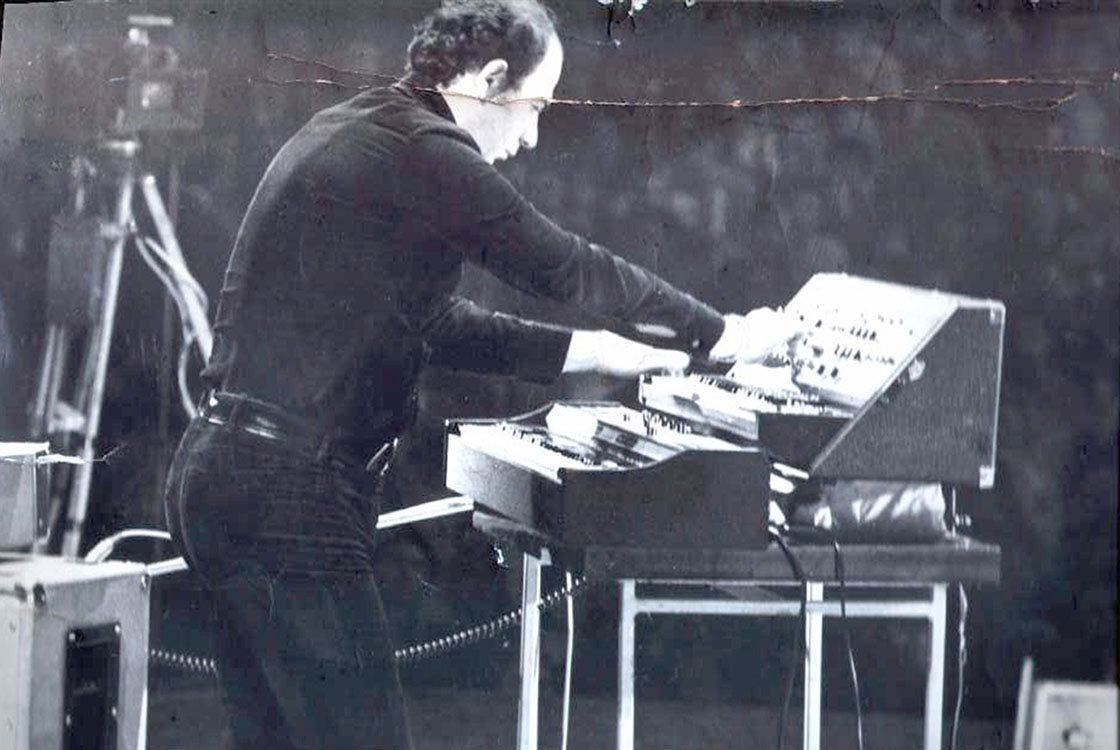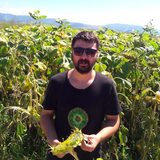I believe in stories
I had never met him before, so when I got the chance to talk to him on a rainy Tuesday morning, I was a little bit nervous at first. I had a strong headache when I woke up in the morning, and I was still feeling dizzy from too many plum brandy shots (the Romanian tuica) and didn't really want to end up asking stupid nonsense questions.
So here I am, riding my bike on the central boulevard of Bucharest. I'm riding fast and passing by taxi drivers and irritated limousine chauffeurs, one by one. I feel like I'm crossing a known labyrinth. Sweat all over my body, I arrive at the cafe where a press conference with Adrian Enescu is about to take place. He had just released a new CD album on a Romanian record label. This new material comprises some selected jazz work from his '70 and '80s period, and also a few songs that he made in 2012. While I'm getting a coffee and waiting my turn for an interview, some guy from the label comes and passes me the CD.
''I'm very happy for this CD! I'm proud of it'', says Adrian a few minutes later, when I finally get the chance to sit right next to him. He points to the recorder, and as I'm keeping it in my right hand, I realize my hand is shaking. Damn, must be from the shots I had last night. Focus. Be here. Forget the hangover; be present here, for god's sake!
''Actually, this is the first CD under my jazz name. Until now, I was only featured on other records from different jazz musicians from Romania or abroad, and I'm glad that I was able to master and color music from the '70s, '80s and 2011-2012. I wanted to create a whole story. I believe in stories. Paradoxically, music is a very abstract thing. It has the power to tell stories and spread subliminal messages. I think this is the essential role of music: to tell stories; no matter if it's Gregorian, Baroque or ultra-contemporary music. If music doesn't tell you a story, it has no chance to survive.''
The art of composing is a great passion of mine. The music creator’s condition was the key that opened many doors for me, and my way of surviving. For me, music is the most beautiful and complex art. I can listen to music continuously. Being a composer means physical and mental endurance. Not being brought down neither by failures, nor success. In the end, only the ones who truly love the art will still stand. Music doesn’t offer all the answers I’m looking for, but it helps me formulate some questions more clearly. Through music, I get acquainted with my own confusions. When I finish a new music piece, I feel more calm, but not necessarily more clarified. The art of composing doesn’t heal you or offer you the sign you are looking for, but it helps you contemplate your limits and, especially, it gives you the right to evolve to the next question.
The CD is called 'Bird in Space'. The title of this retrospective material comes from a jazz song, which Enescu wrote and produced in '75 and dedicated to the work of the famous sculptor Constantin Brancusi.

